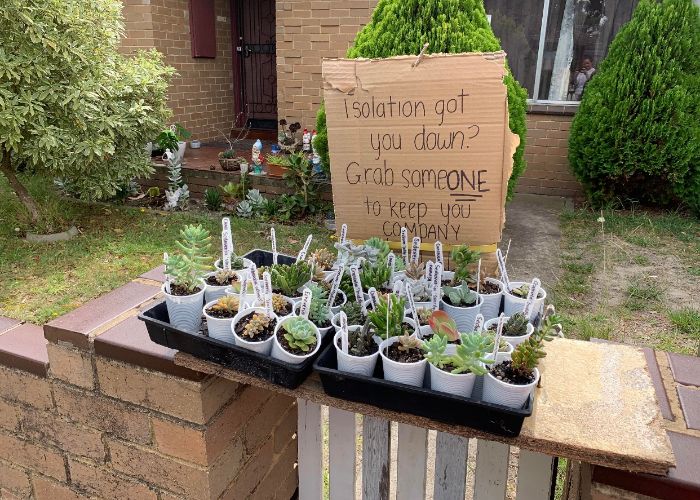The lockdown restrictions are being successful in preventing the spread of coronavirus and relieving the strain on our incredible frontline workers, but the measures introduced have put significant pressure on our mental health and wellbeing.
We have been spending a lot of time isolated at home; staying away from those important to us, stopping our social activities and living differently. We are going through significant changes and challenges in the way that we live.
Lately, we can see a glimpse of normality with talk of easing the restrictions. But it’s difficult to shake off the feeling of being out of control and overwhelmed as we transition back to society and towards the prospect of an economic downturn.

It is important to remember that you are not alone. Most of us are feeling the same way. The latest Office for National Statistics (ONS) survey shows that 80% of adults said “they are very worried or somewhat worried about the effect that COVID-19 is having on their life now”(1). Over 6 in 10 of those who said their wellbeing was being affected mention that they are feeling stressed or anxious. We can see a rise in the number of people reaching out and utilising services to support their own mental health. This is also seen in children and young people where there is also increased demand for mental health support (2).
That’s why it’s alright to acknowledge and talk about these negative feelings. We can help each other to look after our mental health and wellbeing.

Whilst we are bombarded with anxiety-provoking media and false news, the internet is still an amazing platform where we can find useful information and the means to seek help. We will look at the different resources available in Telford and online.
So...how are people coping?
Here are the different ways that people are dealing with the lockdown according to surveys conducted by different organisations. The response from the general public and people with lived experience of conditions shows similar activities that help with mental health and wellbeing.

The ONS survey shows that keeping in regular contact with friends and family is consistently the most common way to help cope with lockdown, with around 8 out of 10 participants in agreement. Online platforms are used the most to maintain communication. Many people also mention the sense of gratification from volunteering and helping others. With spending time together as a family in third, it highlights the key role of communication in maintaining mental health and wellbeing for many people.
More than half of respondents said that watching films, using streaming services and using the internet to continue their usual activities help with lockdown. It comes as no surprise that over 80% of the media consumers in the Global Web Index survey say they are consuming more media content than before the pandemic in the U.S and UK. Broadcast TV and online video platforms are the most common medium across all generations and genders (3).
There are a range of activities that people mentioned that focus on learning something new. The most popular being cooking, reading, gardening, DIY and arts activities.
Many people are utilising their opportunity to exercise outside and also indoors. There is a great deal of evidence to support the importance of regular exercise in relieving stress and its positive impact on our mental health.
One of the key messages from the World Health Organisation (WHO) is to limit our exposure to news that causes us to feel anxious and to only use trusted sources for information. When you look at the online usage in the US and the UK, 68% of media consumers are seeking out pandemic updates online over any other activity(3). One suggestion is to limit our access to these news updates to once or twice a day at specific times. Some are filtering the news sources to avoid unreliable coverage and scaremongering.
Local Support
The lockdown has made accessing support more difficult, but fortunately, there are many local and national organisations offering services remotely. Staff and volunteers are working tirelessly in Telford and across the country.
One great piece of news is that seven local organisations will receive £25,000 of funding from Telford & Wrekin Council to help support the mental health and bereavement services in the borough.
In addition, the council's mental health and wellbeing webpage contains an extensive list of tips to help with your mental health and where to look for support. Here are some of the organisations whose services are available free:
- Community Support Line - provides advice and support to those over 70 or under 70 who have underlying health conditions. Services range from collecting prescriptions, shopping, chat to dog walking and more.
- Online for support and for volunteers
- 01952 382030 Monday-Friday 9am-5pm and Saturday and Sunday 9am-1pm.
- Telford TACT - support for people with addiction and/or mental health conditions, including 121 phone calls and online recovery meeting through zoom.
- 01952 899204
- BEAM - emotional well-being drop-in service for children and young people. Usually based in Market Square, Wellington TF11BP. Now providing support through a telephone service.
- Telford Mind - Listening support line, virtual peer support groups and more.
- 07434 869248 Monday-Thursday 10am-8pm and Friday 10-5pm
- talk2@telford-mind.co.uk
- Telford Senior Citizens Forum - telephone support for older adult who are feeling isolated or need some help.
- 07932 828333 or 07552 975676 Monday-Friday 10am-4pm.
- Online Form
- Telford Autism Hub - provide support for anyone over the age of 18 without a learning difficulty and anyone seeking or has a diagnosis of autism
- 01952 916109
- admin@telfordautismhub.org.uk
- Carers Centre - provide support for family and friend carers from 5 years onward in the borough.
- 01952 240209
- admin@telfordcarers.org.uk
- Kooth – Anonymous access for 11-25yo to drop-in or book online chats with BACP Certified Practitioners. Online Forum. Commissioned by Telford and Wrekin and other councils
More Online Resources

- Talks from Centre for Psychological Research - provides a great series of talks on mental health during the pandemic. Hosted by Professor Maria Uther with guest speakers on online therapy, helping our children and more.
- Wellbeing Pack for Parents - Information and tips to support well-being of parents and children from Telford SEND.
- YoungMinds' support for parents and young people- Tips and advice for young people and parents on looking after their child's mental health.
- Mental health at work- a free UK-wide website bringing together free information, advice, resources and training for employees and employers to promote good mental health at work.
- Our Frontline - 121 support and online resources for NHS workers, carers, Blue Light emergency services and key workers – Joint campaign by multiple charities
- Reading Well - Self-help books recommend by the NHS and practitioners that cover mental health and long term conditions.
- App Catalogue - Compilation of NHS recommended apps for mental health
- Public Health England - Guidance from PHE
Fortunately, many people have adapted to working and studying from home; many have even found new opportunities. In hindsight, we will look back to these surreal months as a time when we came together as a global community to support each other and our incredible frontline workers.
We cannot take responsibility for pages maintained by external providers and information contained. They do not constitute an endorsement or an approval by University Centre Telford of any of the products, services or opinions of the corporation or organization or individual.


/prod01/wlvacuk/media/departments/media-and-communications/images-18-19/220325-Engineers_teach_thumbail.jpg)
/prod01/wlvacuk/media/departments/media-and-communications/images-18-19/BBR_logo_large.jpg)
/prod01/wlvacuk/media/departments/media-and-communications/images-18-19/Wolves-Story-Thumb.jpg)
/prod01/wlvacuk/media/departments/media-and-communications/images-18-19/220505-BAS9-School-Showcase-Resized.jpg)
/prod01/wlvacuk/media/departments/business-solutions/images/banners/business-we-back-you-500x250.jpg)